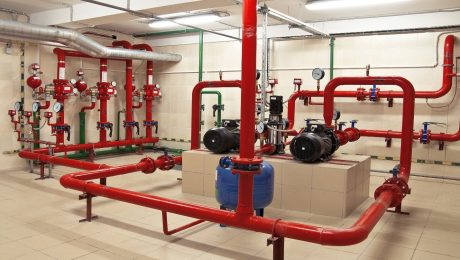Right Fire Fighting System Suppliers, Installers and Integrators
Saturday, 22 April 2023 by Admin
Introduction: Fires can be devastating and destructive, and that’s why it’s crucial to have an effective firefighting system in place. However, choosing the right fire-fighting system suppliers, installers and integrators is just as important as having the system itself. In this blog post, we’ll explore the importance of selecting the right partners for your firefighting system, and how to find the best suppliers, installers and integrators for your needs.
Body:
The role of fire fighting system suppliers When it comes to fire fighting systems, the supplier is responsible for providing the equipment and materials required for the system. Choosing a reputable and experienced supplier is essential to ensure that the equipment is reliable, effective, and compliant with local regulations. It’s important to look for suppliers who have a wide range of products and can customize solutions to meet your specific needs.
The role of fire fighting system installers The installation of fire fighting systems is a critical aspect that should be carried out by experienced and qualified professionals. A poorly installed system can lead to inefficiencies and potentially life-threatening situations. It’s important to choose installers who have a track record of successful installations and who use high-quality materials and equipment.
The role of fire fighting system integrators are responsible for designing and implementing a comprehensive system that meets your specific requirements. They bring together all the different components of the system, such as detectors, alarms, sprinklers, and other fire suppression systems, to ensure that they work together seamlessly. Choosing a skilled and experienced integrator is essential to ensure that the system is optimized for your specific needs and can provide the maximum level of protection.
Factors to consider when choosing fire fighting system suppliers, installers and integrators When selecting partners for your fire fighting system, there are several factors to consider, such as:
- Reputation and experience
- Quality of materials and equipment
- Compliance with local regulations and standards
- Customization and flexibility
- After-sales support and maintenance services
- Cost-effectiveness
Conclusion: Choosing the right fire-fighting system suppliers, installers and integrators is crucial to ensure that your fire protection system is effective and reliable. Take the time to research potential partners and consider all the factors that will impact your choice. By selecting the right partners, you’ll have peace of mind knowing that your building and its occupants are protected from the devastating effects of fires.
Visit for more details: variex.in
- Published in Fire Extinguisher
1 Comment
Types of Fire Extinguishers: A Guide
Wednesday, 15 February 2023 by Admin
Fire extinguishers are essential tools for quickly and effectively extinguishing fires. They can help to prevent a small fire from turning into a devastating blaze. However, not all fires are the same, and it’s important to have the right “Types of Fire Extinguishers” for the type of fire you’re dealing with. In this blog post, we’ll cover the different types of fire extinguishers available, and what types of fires they’re best suited for.
Class A Fire Extinguishers
Class A fire extinguishers are designed to extinguish fires caused by ordinary combustibles such as wood, paper, or cloth. These are the most common types of fires, and class A fire extinguishers are found in most homes and businesses. They are typically filled with water or a dry chemical that can break the chemical reaction that sustains the fire.
Class B Fire Extinguishers
Class B fire extinguishers are designed to extinguish fires caused by flammable liquids such as gasoline, oil, or grease. These types of fires can be very dangerous, as they can spread quickly and cause significant damage. Class B fire extinguishers are typically filled with dry chemicals that are effective in smothering the fire.
Class C Fire Extinguishers
Class C fire extinguishers are designed to extinguish fires caused by electrical equipment such as appliances, computers, or wiring. Water or other conductive materials should never be used to put out electrical fires, as they can cause electrocution. Instead, class C fire extinguishers use non-conductive agents that can safely extinguish the fire.
Class D Fire Extinguishers
Class D fire extinguishers are designed to extinguish fires caused by flammable metals such as magnesium, sodium, or potassium. These types of fires can be particularly difficult to put out, and should only be tackled by trained professionals. Class D fire extinguishers use dry powder agents that can smother the fire by cutting off the supply of oxygen.
Class K Fire Extinguishers
Class K fire extinguishers are designed to extinguish fires caused by cooking oils and fats. These types of fires are very common in commercial kitchens, and can quickly get out of control if not addressed properly. Class K fire extinguishers use wet chemical agents that can effectively put out the fire by cooling the oil and smothering the flames.
In conclusion, having the right type of fire extinguisher can make all the difference in an emergency situation. By understanding the different types of fires and the types of fire extinguishers available, you can make sure that you have the right tools to put out a fire quickly and effectively. Be sure to inspect your fire extinguishers regularly, and replace them as needed to ensure that they’re always in good working condition. Remember, a fire extinguisher can save lives and property, so make sure you have the right ones for your needs.
- Published in Fire Extinguisher



